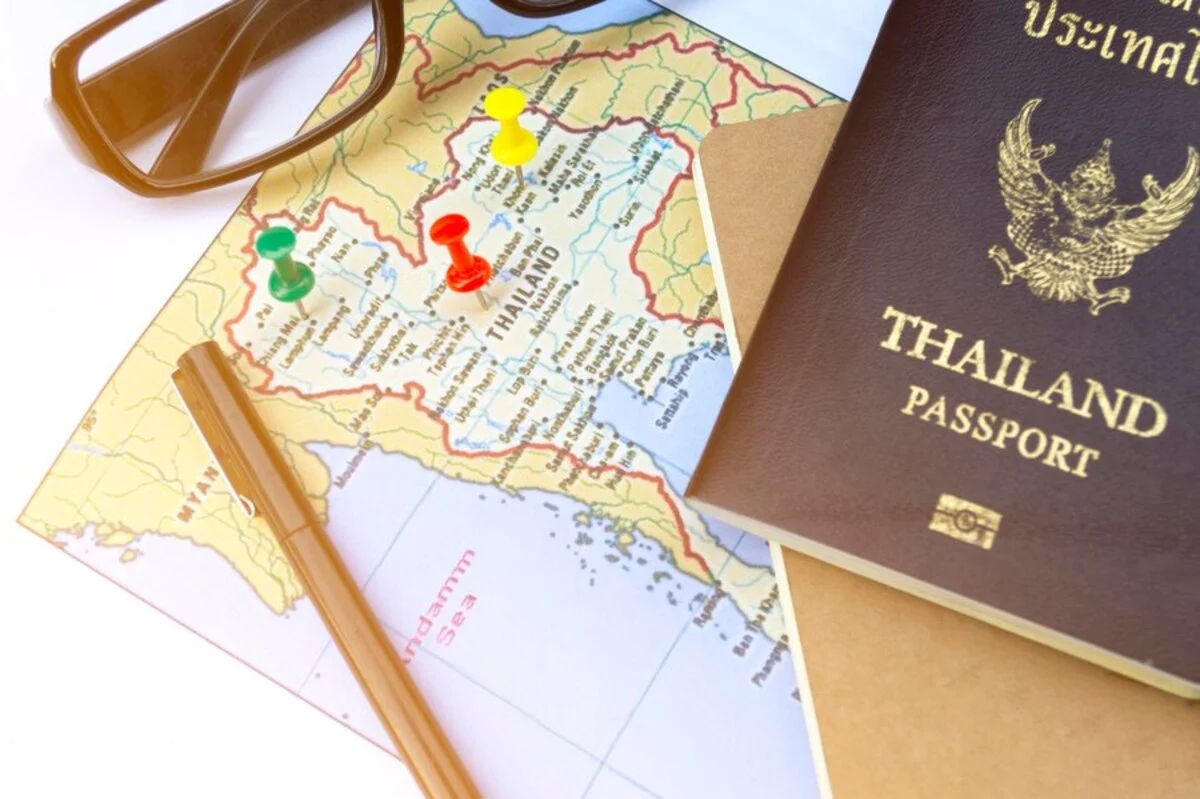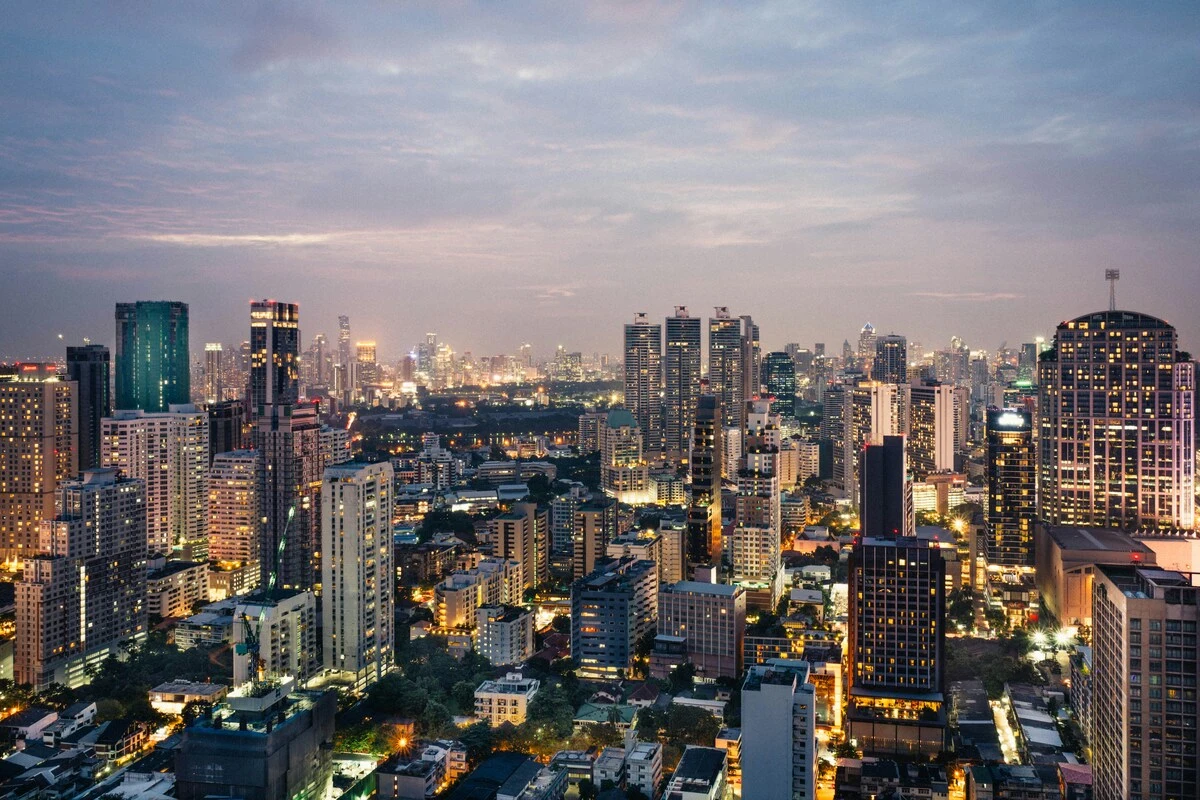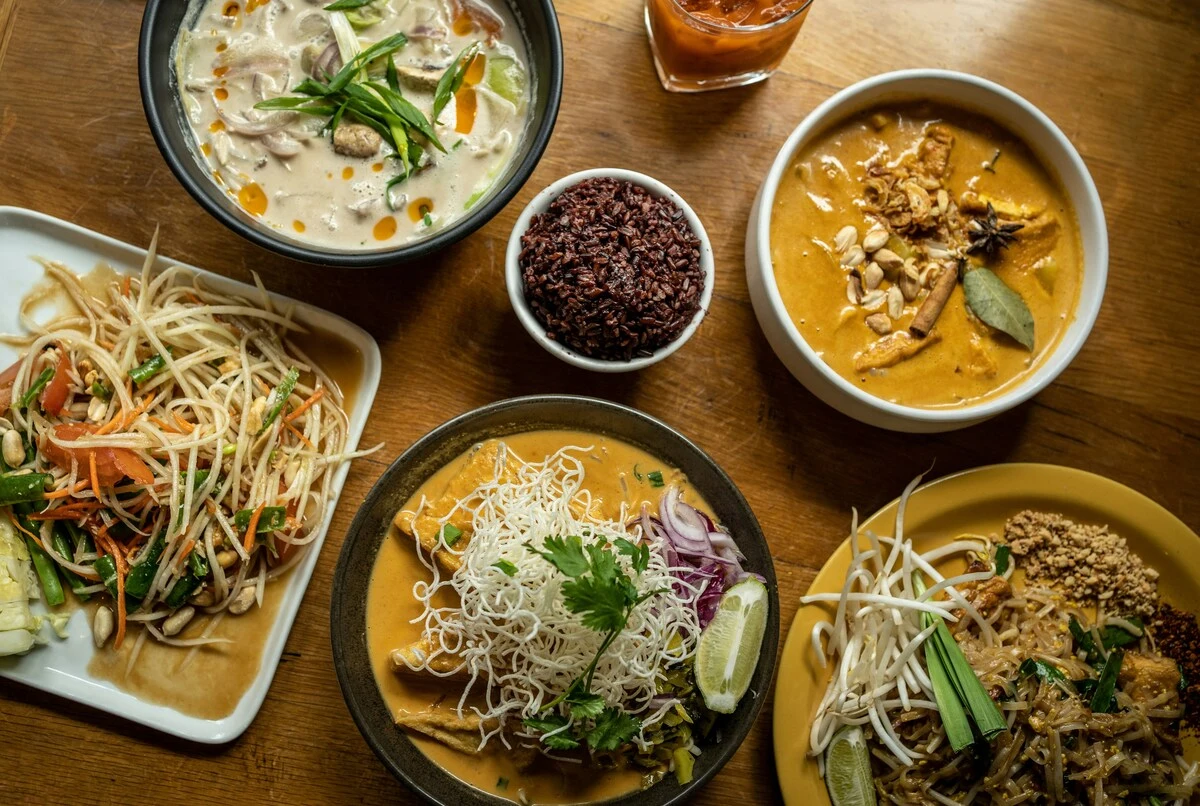10 things you need to know before living in Thailand long-term

Living in Thailand has undoubtedly become an increasingly popular option for foreigners seeking a different lifestyle filled with beautiful landscapes and a rich cultural experience. Thailand and its blend of tradition and modernity offer a unique lifestyle for everyone, whether you are drawn to the busy city life of Bangkok or the beautiful scenery of nature in the north and south.
For these reasons, True Digital Park (TDPK) has contributed as the largest service for foreigners to ensure that you live in Thailand with ease with their help and visa services. However, before you start packing your bags for your upcoming move to the Land of Smiles, there are several things to consider before committing to living in Thailand long-term.
10 things you need to know to live in Thailand long-term

1. Navigating the visa requirements
One of the first hurdles you will surely face when deciding to live in Thailand is securing the right visa. A long-term visa is needed for those planning an extended stay. However, you don’t have to wish the issue away. True Digital Park (TDPK) has covered it all for you. As a certified agency for Long-Term Resident (LTR) visas, they drain your concerns away with their experienced guides and reliable services to help you choose the suitable visa type for your application.
For those over 50 years of age and looking to retire in Thailand, a Wealthy Pensioners visa is an excellent option. However, there are specific financial requirements to be mindful of. If you are planning to work, there are also Highly Skilled Professionals and Work-From Thailand professionals visas, which allow you to work remotely for an overseas company without needing a work permit in Thailand. However, be mindful that a highly skilled professional visa requires sponsorship from a Thai employer and a valid work permit is required.
Whichever visa you choose, ensure you understand the renewal processes and any reporting requirements in maintaining your legal status when living in Thailand. For example, the 90-day address reporting. True Digital Park is here to hold your hand through the often convoluted visa processes of Thailand.
When considering any visa option, make sure that you have all your documents ready because in the end, the effort is worth it.
2. Your tax obligations
If you are living in Thailand for 180 days or more in a year, you would likely be considered a tax resident, meaning that you will need to pay taxes on incomes derived from Thai and overseas sources, which will vary depending on your income. Before making your move, it is crucial to understand your tax obligations. Thailand has a progressive tax system with rates ranging from 0 to 35% depending on your income level.
However, learning about Thai tax obligations could make you dizzy, so consider seeking advice from professionals to ensure compliance with Thai tax laws. Yet, look no further. Here’s a secret tip for tax benefits from TDPK: When you apply for the LTR visa (Highly Skilled category), you will be offered the advantage of a reduced personal income tax rate of 17%, which is lower than the standard rates. With other types of LTR visas, you will get tax exemption for overseas income.
3. Cost of living

An attractive aspect for many expats living in Thailand is the relatively low cost of living compared to many Western countries. But do be mindful that expenses may vary drastically depending on your lifestyle and location.
For example, in relatively rural areas such as Chiang Mai, which is seen as a marquee destination for digital nomads and retirees, you can expect to spend between 25,000 and 60,000 baht per month. But in Bangkok, being the metropolitan capital city that it is, monthly expenses can range upwards of 100,000 baht per month.
Although these figures cover basic living expenses such as rent, food, transportation and some entertainment costs, you need to keep in mind that Western products or frequenting high-end establishments will quickly drive up your monthly expenses.
In any case, cementing yourself into Thai culture and learning to live like a local can significantly reduce your monthly costs while providing you with an opportunity to enhance your cultural experience.
For example, when considering transportation options, instead of hailing a taxi to get around the city, you may want to consider more budget-friendly public transportation options such as the bus or Skytrain. But, if you’re down for hailing a taxi, always make sure that the meter is working, so you won’t be scammed.
4. Finding housing
For expats looking to live in Thailand, the Kingdom offers a wide range of housing options to fit your preferences and budget. From modern condominiums in the heart of Bangkok to traditional Thai houses in quieter neighbourhoods, you are sure to find something that fits your needs. Like with everywhere else in the world, rental prices can vary greatly depending on where you choose to live. In Bangkok and other prime hotspots, you should expect to pay more.
It’s advised to choose the prime location, like an area near Sukhumvit Road, which is very popular among the expats. The recommended area you might need to consider is between the main airport and the city centre. Its convenience helps you access one of the best innovative communities, like True Digital Park, located in Sukhumvit 101. This community brings people together with its modern infrastructure, whether a shopping mall, co-working space, library, or gym, you name it.
Wherever you choose as your next rental location, look out for properties that balance comfort, security, and amenities you may need. Be sure to consider crucial factors such as access to public transportation or local amenities such as supermarkets, restaurants, or gyms. If applicable, you should also consider the distance between your accommodation and workplace. The good news is that many landlords in Thailand prefer longer leases, which often means better rental prices for you.
5. Managing your utilities
Compared to many Western countries, utility costs in Thailand are generally inexpensive. But depending on your usage habits, especially with air conditioning in the hot summer months, your bills may vary.
For electricity, you can expect to pay around three to five baht per unit. Water is even cheaper, usually setting you back around 100 baht per month. Gigabit internet plans are now readily available for around 700 baht per month. Of course, you can opt for cheaper plans if you do not need lightning-fast connections.
In general, it is a good practice to manage your utility costs effectively. Consider energy-efficient appliances and be mindful of your air conditioning usage which can quickly rack up your bills. Sometimes, simply cracking a window open and turning on a fan can work just as well as air conditioning.
6. Cultural considerations to keep in mind of

Undoubtedly, living in Thailand long term means immersing yourself in a culture that may be quite different to what you are used to. It is crucial to understand Thai cultural norms and practices before making your move.
The most important cultural consideration of all is understanding the respect for the Thai monarchy. In Thailand, the royal family is deeply revered, and any disrespect can get you in a lot of trouble. You should also be mindful of any negative comments you make about the monarchy.
It’s normal and understandable that making new friends in a new country can be difficult. And in Thailand, you should approach people with respect, good manners, and friendly gestures. As well as start a conversation with an uncontroversial topic. Yet, still, some people might find it very hard to get to know other people and become close.
So, note this on your list. Go out and try meeting new people from the community like True Digital Park (TDPK). It can help you make friends easily. At TDPK, one of the largest expat communities in Thailand, you will meet expats, investors, or entrepreneurs from all around the world to connect with or maybe more in the future.
In Thailand, public behavioural norms tend to be more conservative than in many Western countries. Dressing modestly is advised when visiting religious areas such as temples.
Making an effort to learn a few basic Thai phrases and sentences can get you a long way in Thailand. While English is widely spoken in major tourist areas and cities, locals are sure to appreciate hearing you speak Thai.
7. Healthcare
Having adequate health insurance while living in Thailand is crucial. Even with the ever-improving public healthcare system in mind, its accessibility and affordability for many Thais are often not translated to the desired standards for many expats.
Opting for private health insurance plans is usually a go-to option for many expats living in Thailand due to the access to higher-quality facilities and English-speaking doctors. Fortunately for us, healthcare costs in Thailand, even private care, are generally lower than those of Western countries. A basic doctor’s consultation, or even specialised treatments could cost a fraction of what you’ll be paying in the UK or US.
When deciding on a health insurance plan, be sure to consider important factors such as coverage limits, exclusions, or whether your plan includes medical evacuations. For many expats living in Thailand, some common illnesses include dengue fever, food-borne illnesses, and heat-related conditions, so make sure that your policy covers these.
8. Ensuring safety and security
Although Thailand is considered safe for many expats, it surely does not hurt to stay up to date about local conditions. Traffic accidents are always a significant concern in the Kingdom if you plan to drive or ride a motorcycle so be sure to always wear a helmet.
Driving on Thai roads can be daunting at first and you can consider taking a local driving course to familiarise yourself with the vast road networks in the country, which in some instances can be dangerous if you don’t know how to operate your vehicle safely.
If you’re not comfortable driving in Thailand, it’s often a good idea to rely on local transport options such as taxis, tuk-tuks, or ride-sharing services, all of which are readily available in most areas. For long trips, buses and trains are also popular and often more secure ways to travel.
In addition to traffic safety, it’s crucial to be vigilant in other areas such as personal security. While Thailand is relatively safe, petty crime, such as pickpocketing, can occur in crowded tourist areas or markets. Always keep an eye on your belongings, especially in busy locations, and be cautious when withdrawing cash from ATMs.
9. Exploring food and dining

One of the joys of living in Thailand is the magnificent food scene. You are sure to find many delicious options to suit every palette and budget option, no matter if it’s a street food stall or a high-end restaurant.
Eating out in Thailand is extremely affordable, especially if you prefer local cuisines. A meal from a street food vendor can cost as little as 40 baht, while a meal from a decent restaurant can cost you upwards of 150 to 300 baht. Western foods are also readily available in any major city from a trusty English pie to a juicy Australian steak, you are sure to find a meal that reminds you of home.
But as you settle into living in Thailand, it is worth exploring local markets to try some of the street food. Not only is this a great way to immerse yourself in Thai culture, but it can also help you reduce your food costs.
10. Adapting to Thai lifestyle
Living in Thailand long-term provides a unique lifestyle opportunity incorporating traditions with modern conveniences. Think of busy night markets and temples, there is always something for you to discover.
The Thai approach to life comes to mind, often encapsulated in the phrase ‘mai pen rai’ which roughly translates to ‘no worries’ or ‘it’s okay’. This attitude can be a refreshing change to the fast-paced lifestyle that many expats are accustomed to.
When living in Thailand, it is worth taking time to explore the kingdom’s natural beauty. You can imagine walking through the golden sand beaches or hiking through breathtaking mountainous trails, there is always something for you to do. Alternatively, you should also consider attending Thai festivals or cultural events.
Altogether, living in Thailand long term can be an incredibly rewarding experience, offering expats a unique blend of cultural immersion, affordable living, and exciting travel opportunities. Whether you are retiring, working, or simply seeking a change of pace, through thorough preparation and an open mind, Thailand extends its arm to welcome you on your upcoming journey in life.
Sponsored
Latest Thailand News
Follow The Thaiger on Google News:


























